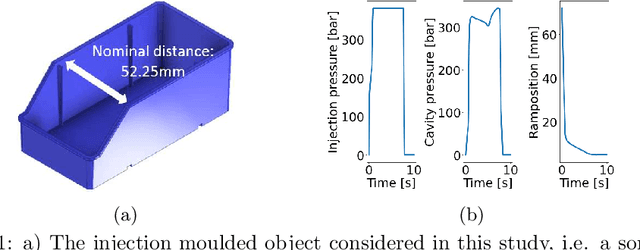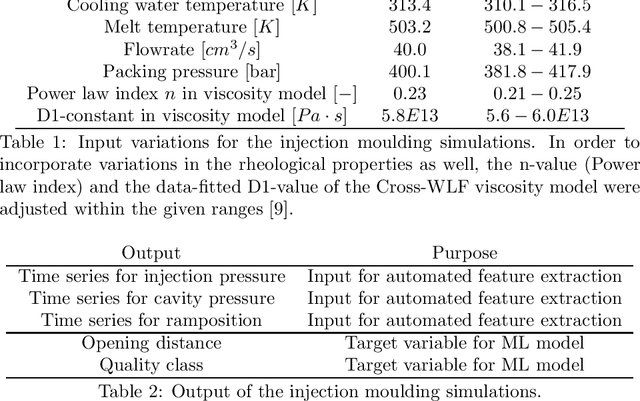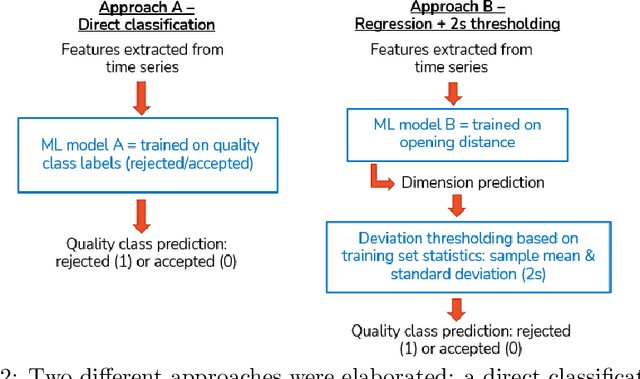Get our free extension to see links to code for papers anywhere online!Free add-on: code for papers everywhere!Free add-on: See code for papers anywhere!
Frederik Desplentere
Machine learning for automated quality control in injection moulding manufacturing
Jun 30, 2022Figures and Tables:







Abstract:Machine learning (ML) may improve and automate quality control (QC) in injection moulding manufacturing. As the labelling of extensive, real-world process data is costly, however, the use of simulated process data may offer a first step towards a successful implementation. In this study, simulated data was used to develop a predictive model for the product quality of an injection moulded sorting container. The achieved accuracy, specificity and sensitivity on the test set was $99.4\%$, $99.7\%$ and $94.7\%$, respectively. This study thus shows the potential of ML towards automated QC in injection moulding and encourages the extension to ML models trained on real-world data.
* Accepted for publishing in ESANN conference proceedings 2022
Via
 Add to Chrome
Add to Chrome Add to Firefox
Add to Firefox Add to Edge
Add to Edge